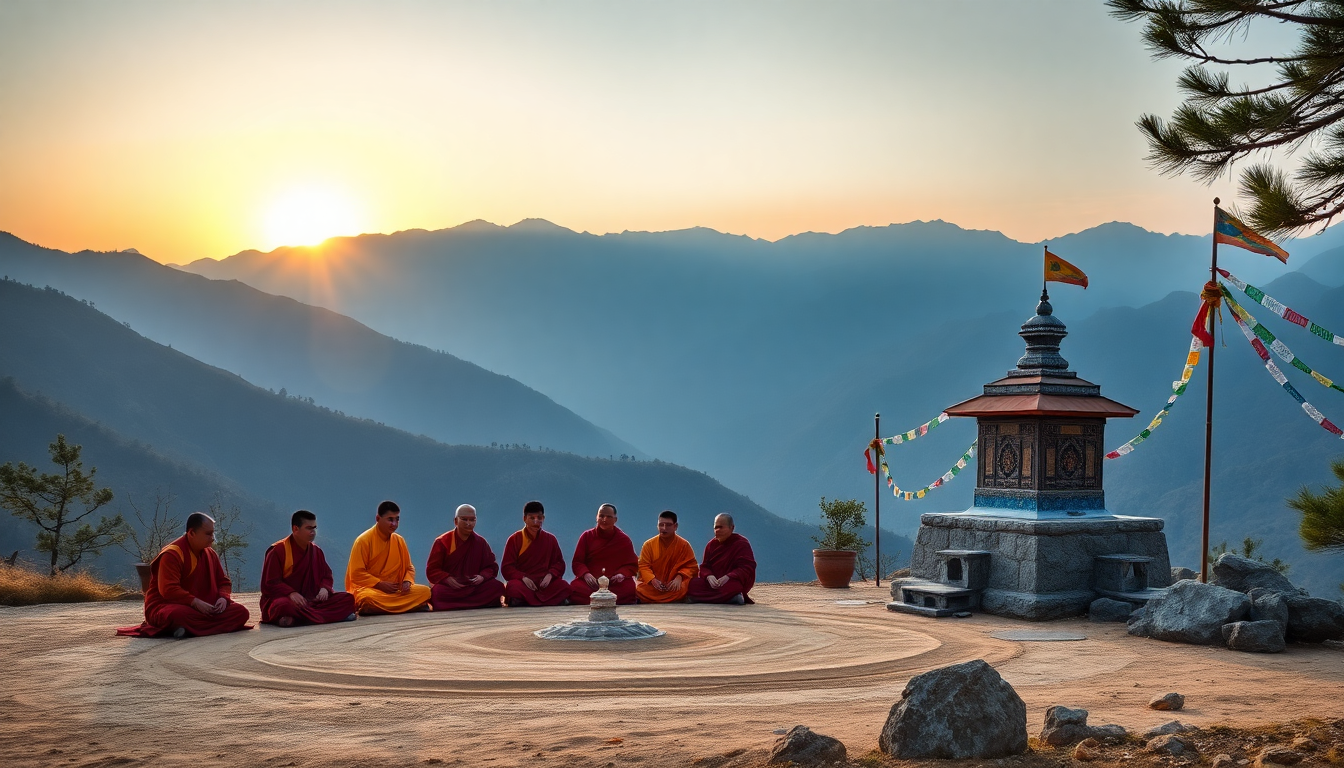Table of Contents
The recent announcement by the Dalai Lama about the selection of his successor isn’t just a religious matter; it carries significant implications that merge spiritual continuity with global politics. As the 14th Dalai Lama celebrates his 90th birthday, he has made it clear that the institution of the Dalai Lama will continue beyond his lifetime. This is a statement that resonates profoundly not only within the Tibetan community but across the globe. It speaks to the spiritual needs of Tibetan Buddhists and echoes through the corridors of power in major capitals like Beijing, Washington, and New Delhi, where governments have a vested interest in the future of Tibetan leadership.
The Significance of the Dalai Lama’s Succession
The Dalai Lama is more than just a spiritual leader; he embodies the resilience and identity of the Tibetan people, especially those in exile. The process of selecting a new Dalai Lama is a meticulous one, rooted in centuries-old traditions that emphasize spiritual signs and the identification of reincarnations. Typically, this process begins after a period of mourning following the current Dalai Lama’s passing, during which high-ranking lamas gather to interpret signs that will guide them to the next leader.
What does this search entail? It can involve interpreting omens, such as the direction of smoke from the previous Dalai Lama’s cremation or visions experienced by oracles at sacred sites. Once a potential candidate is identified, they undergo rigorous tests to confirm their identity as the reincarnation, usually involving young boys born around the time of the previous Dalai Lama’s death. Interestingly, the current Dalai Lama has opened the door to the possibility of a female successor, reflecting a progressive shift in traditional views. Isn’t it fascinating how traditions can evolve yet remain deeply rooted?
However, the political implications of who becomes the next Dalai Lama are monumental. As a revered figure, his successor will not only carry spiritual authority but also symbolize the Tibetan struggle for autonomy and recognition on the global stage. This makes the selection process a hotbed for geopolitical maneuvering, particularly given the Chinese government’s insistence on controlling the reincarnation process.
The Geopolitical Landscape
The geopolitical implications surrounding the Dalai Lama’s succession are immense. For Beijing, controlling the next Dalai Lama is crucial, as the Chinese government views the institution as a direct challenge to its sovereignty over Tibet. In fact, they have established a framework that claims only they have the legitimate authority to recognize reincarnations of Tibetan lamas, a stance formalized in a 2007 law. This contentious backdrop raises the possibility of two rival figures emerging: one recognized by the Tibetan exiles and another endorsed by the Chinese authorities. Can you imagine the divisions that could create?
On the international front, both the United States and India are closely watching the developments. Historically, the U.S. has supported Tibetan autonomy, with bipartisan efforts to affirm the rights of Tibetan Buddhists to choose their spiritual leaders. India, hosting the Tibetan government-in-exile, also sees the continuation of the Dalai Lama’s institution as vital for maintaining its influence in the region and countering Chinese assertiveness. What happens next could reshape the dynamics of this longstanding issue.
As the Dalai Lama himself has suggested, the next reincarnation might not take place within China’s borders, further complicating the situation. His comments about the new Dalai Lama potentially being born in the ‘free world’ carry significant implications for Tibetan identity and the political landscape surrounding the Tibetan diaspora. How will this shift affect the narrative of Tibetan autonomy?
Future Implications and Considerations
The future of the Dalai Lama institution seems poised for challenges. If the current Dalai Lama’s successor is recognized solely by the Tibetan community in exile, it could create a legitimacy crisis for any candidate endorsed by the Chinese government. Such a schism could heighten tensions within the Tibetan community and in the broader geopolitical context, as nations align themselves with one figure or another, shaping international perspectives on Tibetan autonomy. It’s a delicate situation that could lead to further complications.
Moreover, the Dalai Lama’s reflections on the potential end of the institution provoke important questions about the sustainability of this centuries-old tradition in the face of evolving political realities. His musings about possibly not having a successor highlight a pivotal moment in Tibetan Buddhism and its relationship with the modern world. Could this be the beginning of a new chapter?
As we keep our eyes on the unfolding developments, the interplay of tradition, spirituality, and geopolitics will undoubtedly continue to shape the narrative surrounding the Dalai Lama’s legacy and the future of Tibetan Buddhism. The conversations about the next Dalai Lama will not only impact the Tibetan people but will also resonate beyond borders, influencing discussions on religious freedom, human rights, and national identity. What role will you play in these conversations?


